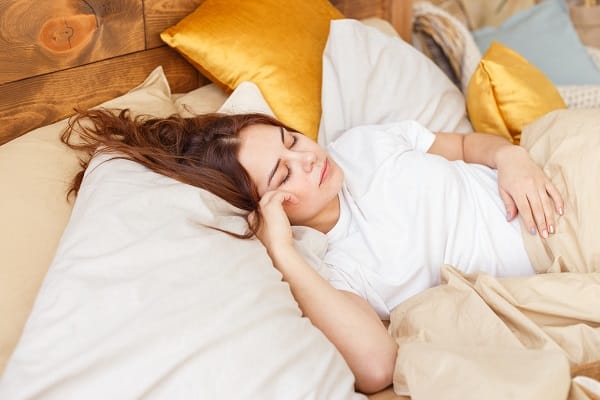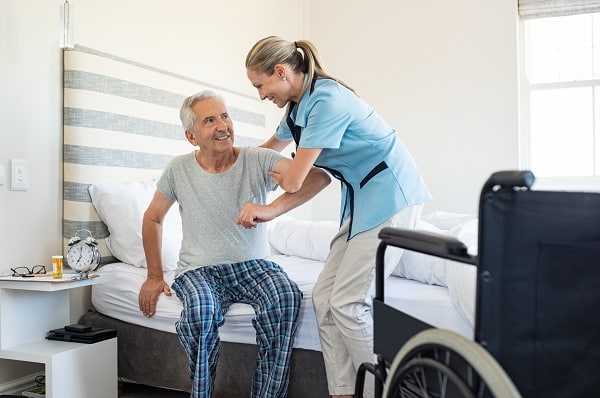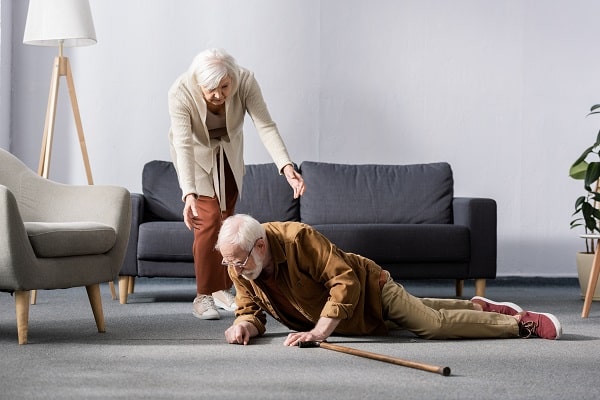Falls are one of the most common accidents that occur in your daily life. They can range from minor stumbles and trips to major slips and tumbles, leading to severe injury and death. As you age, your risk of falling increases significantly. As such, taking preventive measures to reduce the risk of falls is essential. This article will provide the best tips for preventing falls so you can stay safe wherever you go. Read on for more!
Contents
Why Preventing Falls Is So Important?
Falls significantly impact your lives, both in terms of your physical and mental health. Nearly one-third of individuals over the age of 65 who experience a fall are more likely to be hospitalized and even die as a result. Additionally, falls are the leading cause of traumatic brain injury for people over the age of 75.
Preventing falls should be considered an essential priority for seniors or anyone at risk of falling. Beyond physical injuries, senior citizens who experience falls can suffer from extreme anxiety and depression due to losing confidence in their independence. Taking steps towards preventing falls can improve physical and mental well-being, allowing individuals to maximize their quality of life and live safe, happy lives.
Best Tips For Preventing Falls
Now that you understand the importance of preventing falls let’s look at some of the best tips for doing so:
Make Your Home Safer

Making your home safer is essential in preventing falls and other accidents, as many of these occur in the home. By assessing your living space for potential hazards and rearranging it strategically, you can reduce the chances of tripping, slipping, or falling, which might result in injury or worse. Ensuring pathways are clear, having adequate lighting, deciding if a railing should be installed in stairwells and bathrooms, and making sure loose rugs have non-skid backing are some simple but effective steps to start with.
Even something as mundane as raising electrical outlets, so you don’t need to crouch down to use them, can be surprisingly helpful in avoiding falls. Keep upper levels well organized, too, since increased clutter increases the risk of injury by adding obstacles that can easily be tripped over. Taking these measures may also provide an added sense of security so you can sleep peacefully, knowing your home is not only safe but more navigable than ever before.
Exercise Regularly

Exercise is essential for physical health and fitness and can also be a powerful way to reduce the risk of falls as you age. Increasing strength, balance, and flexibility through regular exercises like yoga or tai chi can help you maintain better body control, improve your posture and keep your joints more supple.
Research shows that these types of activities are particularly effective at improving the proprioception skills in your feet and legs, which help you react quickly when you start to slip or stumble so that you can correct your balance before falling. Making exercise part of your weekly routine will ensure you enjoy greater mobility as you grow older while giving yourself as much protection against unpredictable slips and falls as possible.
Wear Non-Slip Shoes

Wearing non-slip shoes is essential for preventing falls, as any wet or slippery surface can increase the risk of a person losing their balance and falling. Non-slip shoes have treads on the soles that help to provide traction and grip on especially slick surfaces. While it might not seem like an essential precaution, it can make all the difference in maintaining proper balance and equilibrium.
Not just outdoors – think kitchen tiles, wet marble bathroom floors – but also in places where unexpected spillages or drips occur, such as restaurants or supermarkets. Non-slip shoes protect feet from potential abrasions and provide surefootedness around even the most treacherous surfaces. It’s wiser to be prepared than put yourself at risk; if you don’t currently own a pair of non-slip shoes, consider investing in them for your safety and comfort.
Get Enough Sleep

Getting enough sleep is essential for good health. It helps regulate hormones, rest the body and mind, and slow aging. As you age, it’s even more important to get seven or eight hours of quality sleep per night to ensure your body can handle everyday activity – like walking. Not getting enough sleep increases the risk of accidental falls in the elderly population by significantly impeding muscle reflexes and alertness.
Sleep deprivation also increases feelings of confusion, dizziness, and physical fatigue, which may contribute to loss of balance and increased fall risk. If you are an elderly person striving to reduce your chance of falling, make sure you are prioritizing a solid sleep cycle each night. The rewards for your health will be great!
Ask For Help If Needed

Seeking help when needed is key to preventing falls. When you become dependent on assistance to do routine activities, you can be at risk of taking a tumble. Checking in with family, friends, or professional resources can bridge the gap between living independently versus relying on others to do everyday tasks. Asking for help changes that dynamic and provides support and safety while enabling people to retain their independence as they age.
It’s worth taking the extra step to ensure you’re safe and secure. Taking the initiative for your safety proves you are empowered and remain in control even when needing extra protection from an outside source. Plus, asking for help leads to more social interaction, which can have added mental health benefits as well.
Stay Alert And Aware

Staying alert and aware is essential for preventing falls, especially among the elderly. Being conscious of your environment helps you better assess threats and opportunities that may arise. It pays to be attentive and take into consideration everything around you. Responding quickly and accordingly can mean the difference between a life-affirming experience or an unfortunate accident.
From what shoes you wear to where you walk. When out and about, listening for audible warnings like car horns can provide early warning signs of danger ahead so that evasive actions can be taken. Falling is a serious risk, particularly in older age groups, yet with vigilance and mindfulness, the chances of someone suffering a fall can be greatly reduced.
Have Regular Vision Checkups

Having regular vision checkups can be extremely beneficial in preventing falls, which can be particularly dangerous for elderly individuals. By undergoing these checkups, you can ensure that your sight is up-to-date and in good condition. Failing to have regularly updated vision screenings could result in an array of undetected eye diseases or conditions like glaucoma, cataracts, and macular degeneration that may increase the risk of danger in various activities.
With this risk significantly reduced due to proper vision screenings, anyone from children to seniors can go about their everyday lives with extra caution and confidence. Not only will this help prevent falls, but it also may enable people to enjoy the beauty of life through improved sight.
Start Preventing Falls Today!
Falling can be a serious injury for elderly individuals, but falls can be prevented with conscious effort and proactive measures. So take charge of your well-being today and start preventing falls! With these tips, you can reduce your chances of falling and remain safe and healthy.


